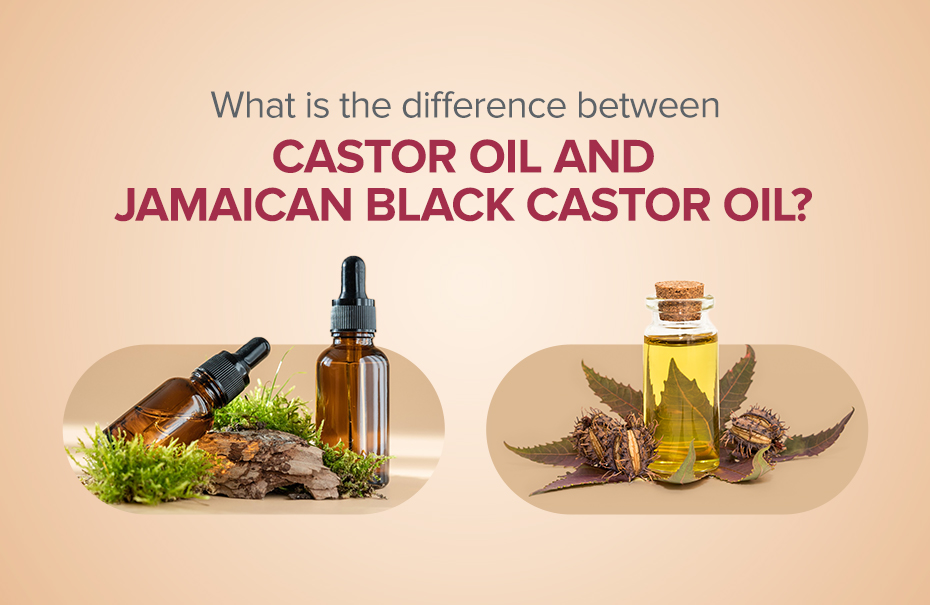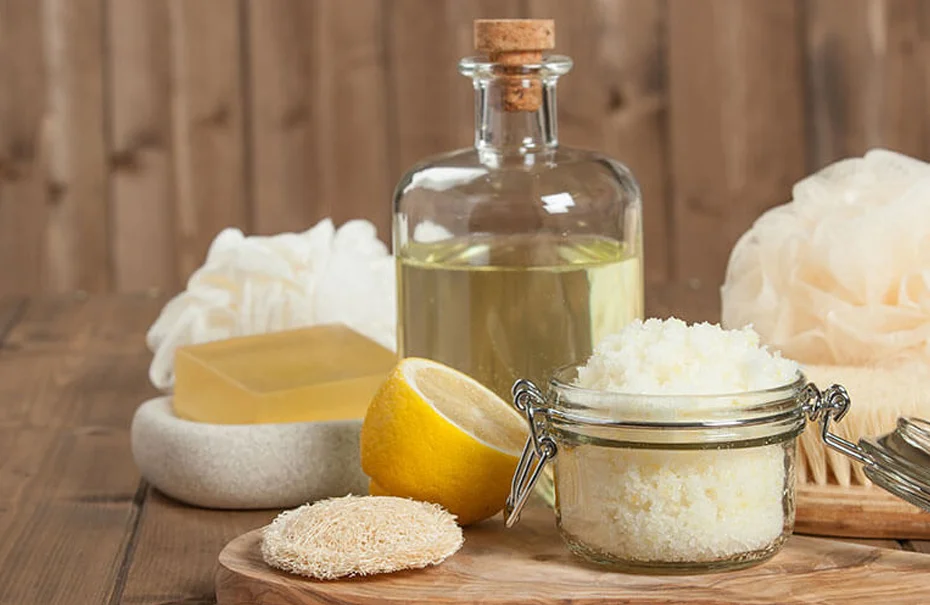What is the Difference Between Castor Oil and Jamaican Black Castor Oil?

Castor oil and JBCO have deep roots in traditional medicine and cosmetics. Their natural properties have made them popular in modern products from hair care to industrial uses, meeting growing consumer demand for organic ingredients. Castor oil and JBCO have deep roots in traditional medicine and cosmetics, from ancient Egypt to Jamaican folk remedies. Today, they’re used in hair care, skin care, pharmaceuticals, and industrial applications.
The rising demand for natural ingredients has increased their popularity among consumers and manufacturers alike. Understanding the distinct properties of these oils is crucial for developing effective products, whether for hair growth, skin moisturizing, or industrial uses.
Let’s explore the unique properties of both castor oil and Jamaican black castor oil to see how each when fused with your product can push your consumers to buy from you.
Key Differences between Castor Oil and Jamaican Black Castor Oil
As a manufacturer or product developer, understanding these differences is crucial for creating targeted and effective formulations. The choice between castor oil and JBCO can significantly impact your product’s performance, consumer appeal, and market positioning.
Launching your next big product and thinking about which oil—castor or Jamaican black castor oil—will offer the perfect edge? To be precise, castor oil and JBCO are generally stocked side by side, leaving many confused, more so if you are a manufacturer and want top-quality ingredients for your products.
Understanding the difference can help you make a smart choice.
#1 Extraction Process: How Is Each Oil Produced?
Since the methods of extraction and production affect the unique properties and applications of the oil, knowing the process for each is essential for the manufacturers.
Castor Oil
Castor oil is extracted by an effortless process called cold pressing. It mechanically presses the seeds without any heat application, yielding an oil pale yellow in color and rich in ricinoleic acid, valued for its anti-inflammatory and moisturizing abilities. The cold pressing process strongly retains these qualities, making it desirable for all types of formulations.
JBCO
The production of Jamaican black castor oil is different. The seeds are initially roasted and then ground to a paste and boiled with water, darkening the oil and raising its alkalinity because of the ash from roasting. These qualities provide excellence to Jamaican black castor oil for hair and skin.
#2 Chemical Composition
How effective your castor oil-based product will be depends majorly on the oil’s chemical composition, letting you know its suitability for different applications.
Constituent of Castor Oil
Castor oil’s strength is in ricinoleic acid, constituting 90% of its fatty acids. This exceptional fatty acid imparts anti-inflammatory, antimicrobial, and moisturizing properties to the oil, while the high viscosity allows it to seep through the skin and hair follicles, making this oil highly popular in health and beauty.
Constituents of JBCO
A Jamaican black castor oil manufacturer processes the oil for higher ash content and more alkaline nature—the change in pH level impacts how it interacts with hair and skin. While both are beneficial, Jamaican black castor oil for hair growth is a marvel due to this distinction in chemical profile.
#3 Physical Attributes: Color and Texture
Can you differentiate between the two just by looking at the oils? Of course! They noticeably have varying physical appearances.
Physical Properties of Castor Oil
Castor oil is a transparent, pale yellow liquid with a light texture. It is versatile and easy to mix with other compounds, be it creams, lotions, or health supplements.
Physical Attributes of JBCO
Jamaican black castor oil is quite thick and dark brown, even black, in color. Because it contains ash due to roasting. The thick texture enhances its moisturizing feature in hair care applications.
#4 Functional Properties and Uses
Have a look at the core properties and uses of each to understand castor oil and Jamaican black castor oil benefits better:
| Functional Properties and Uses | Castor Oil | Jamaican Black Castor Oil |
| Primary Uses | Widely used in cosmetics, skincare, pharmaceuticals, and industrial lubricants. | Primarily used in hair care products. |
| Key Benefits | Excellent emollient for lotions, ointments, and hair care. | Promotes hair growth, retains moisture, and soothes the scalp. |
| Ideal Applications | Moisturizing lotions, hair products, and ointments. | Hair care, moisture retention, and scalp soothing. |
#5 Market Demand and Consumer Preferences
Due to the rising demand for natural, health-conscious products, castor oil and Jamaican black castor oil are in the constant phase of gaining traction. Here’s how:
Castor Oil Market
Since consumers are getting more environmentally aware, they demand natural and eco-friendly oils such as castor oil. Since castor oil is a traditional ingredient, consumers are increasingly looking up products that employ such natural sensations.
Jamaican Black Castor Oil Market
Jamaican black castor oil in India is piquing the interest of those who desire holistic health. Its remarkable history and cultural importance serve elegance to the oil, and it’s emerging as a new natural healthcare oil worldwide. If you’re tapping into this market, products using Jamaican black castor oil are a fine addition.
#6 Sustainability and Environmental Impact
Checking the footprint of these oils sheds light on their implications for sustainability while meeting global demand. Understanding this is important for making environmentally friendly commodities during manufacturing.
Castor Oil Production: Sustainable Leader
Castor oil is amazingly sustainable since castor plants thrive well in semi-arid regions, with nearly no water and pesticide requirements. The cold pressing process forms extremely minimal waste, where byproducts such as seed cake are repurposed as either fertilizers or animal feed. This makes it a favorite of industries that are conscious of the environment.
Jamaican Black Castor Oil: Environmental Footprint
Jamaican black castor oil formation is based on age-old methods. It is a source of a community’s livelihood and traditional reserves. However, the excess roasting practice increases its carbon footprint, using more energy. Large-scale production of Jamaican black castor oil may pose an environmental imbalance in the form of deforestation.
#7 Safety and Regulatory Considerations
Safety Profiles of Both Oils
Both the oils have established safety profiles. However, a few individuals might be allergic and may witness skin irritation. Make sure to test and label them correctly so your customers are informed of usage recommendations.
Regulation in Food and Cosmetic Industries
Comply with industry regulations when featuring these oils in your products. Sourcing and testing for quality assurance must hit the mark of safety standards, especially in the food and cosmetic markets.
Bottom Line
Although Castor oil and Jamaican black castor oil share a common ancestry, they vary in production methods, chemical composition, and applications. Knowing these variations plays a crucial role in designing quality products as per the market trends. Choosing the right oil can be a game-changer for your product formulations for skincare and hair care.
If you are searching for premium castor oil products, Ambuja Solvex presents you with the finest raw materials to boost your production and sales. Browse our listings today and get the perfect oil for your valuable customers!



